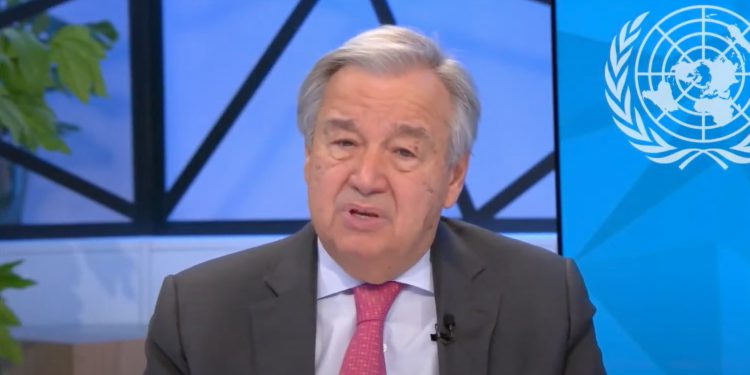Climate shocks forced 30 million people to flee their homes in 2020 – three times more than those displaced by war and violence, according to United Nations Secretary-General António Guterres.
In a special address at the virtual World Economic Forum Davos Agenda 2022 he said 1 billion children are at an extremely high risk of the impacts of climate change.
Global emissions are set to increase by 14 per cent by 2030, he said.
“Even if all developed countries kept their promises to drastically reduce emissions by 2030, global emissions would still be too high to keep the 1.5 degree Celsius goal within reach. We need a 45 per cent reduction in global emissions this decade.
“Turning this ship around will take ingenuity from governments and businesses. We see a clear role for businesses and investors in supporting our net-zero goal.”
He said the global financial system needs to be reformed, as low-income countries are experiencing their slowest growth in a generation.
“If we fail to provide debt relief we create a lopsided recovery”
“The burdens of record inflation, shrinking fiscal space, high interest rates and soaring energy and food prices are hitting every corner of the world and blocking recovery, especially in these low and middle-income countries.”
António Guterres said this is making it even more difficult for governments to invest in sustainable and resilient systems.
He urged business leaders to shape a global financial system that works for all countries by restructuring the long-term debt architecture, addressing corruption, ensuring tax systems are fair and building up private investment in developing countries.
“If we fail to provide debt relief and financing to developing countries, we create a lopsided recovery that can send an interconnected global economy into a tailspin,” he said.
He said the world is nowhere near World Health Organization targets to vaccinate 40 per cent of people in all countries by the end of 2021, and 70 per cent by the middle of 2022, adding, “If we fail to vaccinate every person, we give rise to new variants that spread across borders and bring daily life and economies to a grinding halt.”
He asked pharmaceutical companies to stand in solidarity with developing countries by sharing licences, know-how and technology to find a way out of the pandemic.























